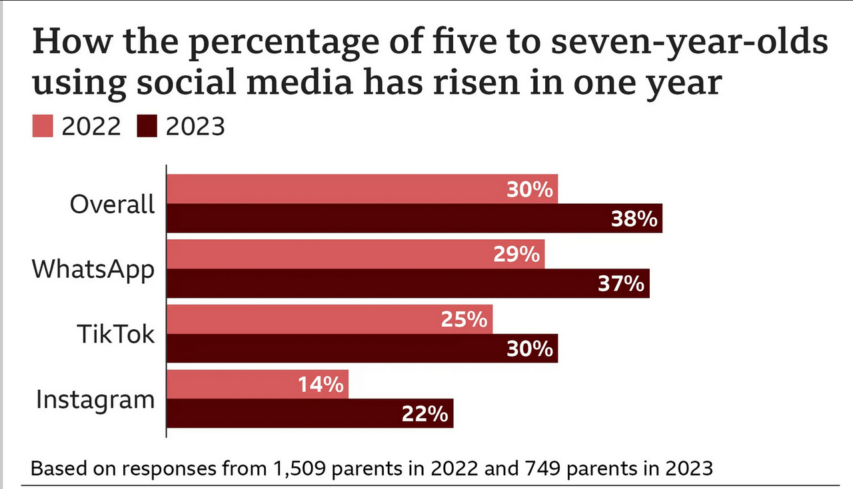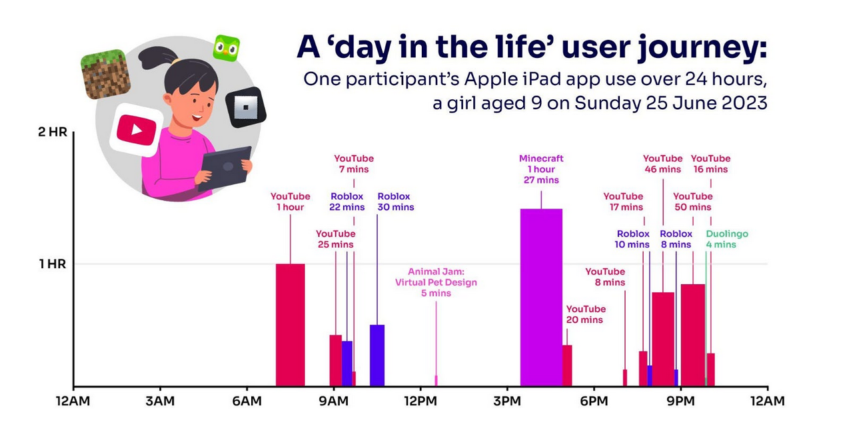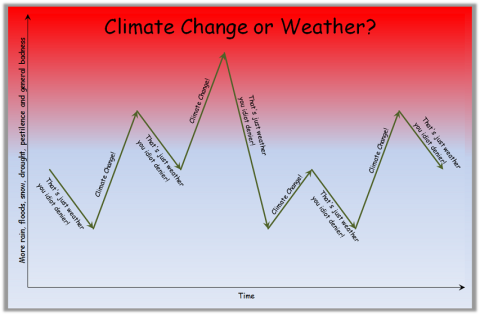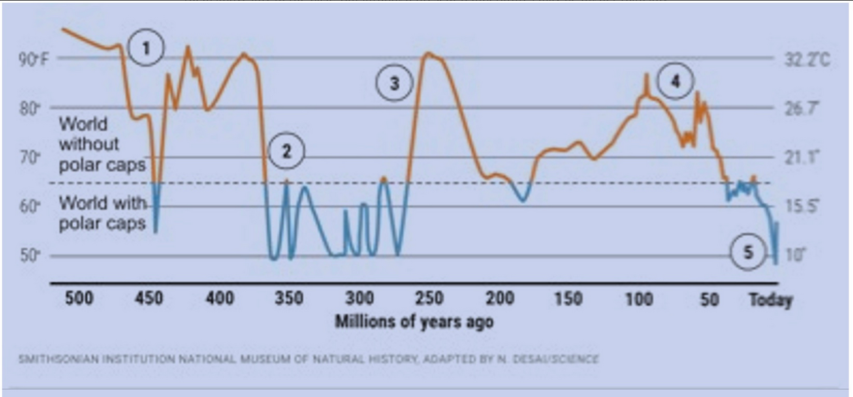Every now and again, it’s worth thinking about what the intersectional left’s ultimate endgame really is — and here it strikes me as both useful and fair to extrapolate from Kendi’s project. They seem not to genuinely believe in liberalism, liberal democracy, or persuasion. They have no clear foundational devotion to individual rights or freedom of speech. Rather, the ultimate aim seems to be running the entire country by fiat to purge it of racism (and every other intersectional “-ism” and “-phobia”, while they’re at it). And they demand “disciplinary tools” by unelected bodies to enforce “a radical reorientation of our consciousness”. There is a word for this kind of politics and this kind of theory when it is fully and completely realized, and it is totalitarian.
Andrew Sullivan, “A Glimpse at the Intersectional Left’s Political Endgame”, New York Magazine, 2019-11-15.
May 5, 2024
QotD: The aims of the intersectional left
May 4, 2024
Shakespeare Summarized: Antony and Cleopatra
Overly Sarcastic Productions
Published Dec 2, 2016Hey, remember almost exactly three years ago when I summarized Julius Caesar? Published on December 1st, even? A coincidence I totally planned when I spontaneously decided to do this video today?
QotD: Why Donald Trump beat Hillary Clinton
Eight years ago, with the American election reaching fever pitch, no one truly believed that Donald Trump would defeat Hillary Clinton. I certainly didn’t. But then the Clinton team decided to publish her playlist –
(I’m embarrassed just to type that). In one flash, I knew that Trump would win. Not because Clinton’s playlist was lame, obvious, safe, uninspiring … I’m not judging her taste in music, or lack thereof, nor would I count myself qualified to do so. I knew instantly she would lose because it was so clear that no one on earth would ever want to see her playlist. Let alone listen to it. No one on earth would want to know that such a playlist existed, much less care a raspberry fuck what was in it, what genre, what generation, what anything. For all the negative feelings I may have entertained concerning Trump’s personality, moral and ethical nature, honesty, decency etc., etc., I had to confess that I was fascinated to know what might be in his playlist. For all I knew, it could be polka music, soft rock, clawhammer bluegrass, death metal, light classical, Nu-folk, Tesco1, psychedelic funk, Tijuana brass. It didn’t matter. What mattered was that I was interested. And I knew with a certainty that might be regarded as deeply arrogant that my belief – that a Hillary Clinton playlist was among the least interesting ideas ever proposed – would be a belief shared by most people, whatever their political leanings. It’s not fair on Hillary Clinton that this should be the case, but the case is what it is. We smell it at once. Hillary Clinton’s playlist? No. Therefore, somehow, Hillary no.
Statistics and group theory can take us a long way, but smell takes us further.
Stephen Fry, “The One and the Many”, The Fry Corner, 2024-02-02.
1. Tesco, as a branch of dance music, does, or at last briefly did, exist. It’s a blend of techno and disco. You knew that.
May 3, 2024
So, what Richard Hanania is really saying is “US civil rights law is bad”
Scott Alexander reviews Richard Hanania’s recent book The Origins of Woke: Civil Rights Law, Corporate America, and the Triumph of Identity Politics:
The Origins Of Woke, by Richard Hanania, has an ambitious thesis. And it argues for an ambitious thesis. But the thesis it has isn’t the one it argues for.
The claimed thesis is “the cultural package of wokeness is downstream of civil rights law”. It goes pretty hard on this. For example, there’s the title, The Origins Of Woke. Or the Amazon blurb: “The roots of the culture lie not in the culture itself, but laws and regulations enacted decades ago”. Or the banner ad:
he other thesis, the one it actually argues for, is “US civil rights law is bad”. On its own, this is a fine thesis. A book called Civil Rights Law Is Bad would – okay, I admit that despite being a professional Internet writer I have no idea how the culture works anymore, or whether being outrageous is good or bad for sales these days. We’ll never know, because Richard chose to wrap his argument in a few pages on how maybe this is the origin of woke or something. Still, the book is on why civil rights law is bad.
Modern civil rights law is bad (he begins) for reasons baked into its history. The original Civil Rights Act of 1964 was supposed to be an ad hoc response to the outrageous level of anti-black racism going on in the South, which protests and TV news had finally brought to the attention of the white majority. There was broad support for a bill which was basically “don’t be the KKK”.
Sex discrimination got tacked on half as a joke, half as a poison pill by its enemies to make the bill unpalatable (fact check: true – but there’s a deeper story, see this Slate article for more details). Ideas about “affirmative action” and “disparate impact” weren’t tacked on at all; the bill’s proponents denied that it could be used to justify anything of the sort, and even agreed to include language in the bill saying it was against that. Still, after the bill was passed, a series of executive orders, judicial decisions, and bureaucratic power grabs put all those things in place.
The key point here is that “quotas”, or any kind of “positive discrimination” where minorities got favored over more-qualified whites, were anathema to lawmakers and the American people. But civil rights activists, the courts, and the bureaucracy really wanted those things. So civil rights law became a giant kludge that effectively created quotas and positive discrimination while maintaining plausible deniability. This ended up as the worst of both worlds. Hanania specifically complains about1:
Affirmative Action
Hanania’s take on affirmative action involves the government sending companies a message like this:
- We notice your workforce has fewer minorities than the applicant pool.
- If this remains true, we’ll sue you for millions of dollars and destroy your company. So by the next time we check, your workforce had better have exactly many minorities as the applicant pool.
- But you’re not allowed to explicitly favor minority applicants over whites. You certainly can’t do anything flagrant, like set a quota of minority employees equal to their level in the applicant pool.
- Have fun!
(here “the applicant pool” is an abstraction, often but not always the same as the general population, which is poorly defined and which bureaucracies can interpret however they want. It’s definitely not the same thing as the actual set of qualified applicants to the business!)
This satisfied the not-really-paying attention white electorate, because politicians could tell them that “quotas are illegal, we’re sure not doing anything like that”. And it satisfied civil rights activists, because inevitably businesses/departments came up with secret ways to favor minorities until representation reached the level where they wouldn’t get sued.
A recent case illustrates the results of this double-bind. The FAA hires air traffic controllers. They used to judge applicants based on a test which measured their skills at air traffic control. This resulted in comparatively few black air traffic controllers. Various civil rights groups put pressure on them, and they replaced the test with a “biographical questionnaire”. The questionnaire asked weird unrelated questions about your life, and you got points if you gave the answer that the FAA thought black people might give (for example, if you said your worst subject was science). This still didn’t get them enough black employees, so they secretly told black communities exactly what answers to put on the questionnaire to go through.
It’s easy to blame the FAA here, but (Hanania says) civil rights law almost forces you to do something like this. People tried simpler things, like keeping a test but giving minority applicants extra points. The courts and civil rights bureaucracy struck these down as illegal. The almost-explicit policy was that you had to get more minority employees, but you had to hide it carefully enough that the American people (who were still against racial preferences) wouldn’t catch on.
1. I’ve included three of Hanania’s four civil rights law subtopics. The book covers a fourth, Title IX (mostly focusing on women’s sports in college). Although the book provides lots of examples about how the laws here are unfair and outrageous, I can’t bring myself to care about college sports enough to give it the same subtopic status, as, say, the hiring process for all the corporations in America.
May 2, 2024
Gad Saad’s latest “affront to human dignity” kerfuffle
Gad Saad managed to do more than just ruffle the feathers of the Québécois last year by calling the Quebec accent “an affront to human dignity”:
In my 30-year career as a professor and public intellectual, I have never shied away from tackling sacred cows. As a free speech absolutist, I firmly believe that short of the usual caveats (e.g., direct incitement to violence, defamation), free speech is a deontological principle that is inviolable. As a Jewish person, I support arguably the most offensive speech possible, namely the denial of the Holocaust. Such is the price that we must pay to live in a truly free society.
As I explain in my 2020 book, The Parasitic Mind: How Infectious Ideas Are Killing Common Sense, the operative zeitgeist in the West is that one’s speech should be tempered in order to minimize the prospect of hurt feelings. This is a terrible reflex in that it forces people to engage in arguably the most pervasive form of censorship, self-censorship. The reality though is that truth must be anti-fragile to mockery, derision, satire, criticism and scrutiny. If it cannot withstand such stressors, it is undoubtedly false. Or as the philosopher Peter Sloterdijk remarked in Critique of Cynical Reason (p. 288): “How much truth is contained in something can be best determined by making it thoroughly laughable and then watching to see how much joking around it can take. For truth is a matter that can stand mockery, that is freshened by any ironic gesture directed at it. Whatever cannot stand satire is false.”
This brings me to a bewildering episode that I faced last summer. The cancel mob came for me albeit in a truly unexpected manner. On July 25, I appeared on Joe Rogan’s podcast for the ninth time to promote the release on that day of my latest book, titled The Saad Truth About Happiness: 8 Secrets for Leading the Good Life (paperback edition to be released on May 14, 2024). My conversations with Joe are always fun, informative and far-ranging. At one point during our chat, we were jocularly discussing various accents that I found to be auditorily unappealing. I remarked that my family and I had just returned from Portugal, and accordingly I had found the Portuguese accent to be less than attractive. I then qualified Hebrew as “violently ugly”. But it was the third accent that unleashed the tsunami of rage, insults, threats and calls to have me fired from my 30-year professorship. I jokingly said that the French-Canadian accent was an “affront to human dignity”. The sentence in question has become a trademark hyperbolic humorous phrase that I use when expressing an over-the-top esthetic opinion. It is a running gag that has appeared on numerous occasions on my X (formerly Twitter) feed. I have referred to The Beatles, musicals, Lionel Messi haters, fans of Cristiano Ronaldo, and the song “Ironic” by Alanis Morissette as an affront to human dignity/decency. If my wife burns our dinner, I might joke with her that the dish is an affront to human dignity.
In the past, I have triggered the ire of many ideological groups including Islamists, trans activists and vegans. But nothing compared to the unbridled hate that I received from some of my fellow Quebecers, which was largely set off by an article written by Marc Cassivi in La Presse regarding my apparent “linguistic genocide”. My stellar 30-year record as an academic and international bestselling author had never managed to capture the attention of French-Canadian society but once I dared to joke about the local accent, I had committed a linguistic capital crime. And it was time for me to pay!
May 1, 2024
April 30, 2024
April 27, 2024
Climate science or climate “science”?
David Friedman is a very intelligent man and I wouldn’t want to face him in a debate, even on a topic I feel well-informed about. He’s not a scientist and hasn’t made a serious study of climate but he can read the reports and make up his own mind. He’s inclined to believe the data available indicates that the planet is warming but he isn’t convinced that this is enough to justify the kind of authoritarian controls that climate activists demand:
The argument for doing drastic things to prevent global warming has two parts. The first has to do with reasons to think that the earth is getting warmer and that the reason is human action, in particular the production of CO2. The second is the claim that changes we have good reason to expect if we do not take appropriate action to prevent them will have very bad consequences for us.
Much of the criticism I have seen of the argument has to do with the first half, with critics arguing that the evidence for global warming, at least the evidence that it is caused by humans and will continue if humans do not mend their ways, is weak. I do not not know enough to be certain that those criticisms are wrong; climate is a very complicated and not terribly well understood subject.1 But my best guess from watching the debate is that the first half of the argument is correct, that global climate is warming and human action is an important part of the cause. What I find unconvincing is the second half of the argument, the claim that climate change we have good reason to expect would have catastrophic consequences for humans.
Obviously one can imagine climate change large enough and fast enough to be a very serious problem — a rapid end of the current interglacial, for example. If, as I believe is the case, climate is not very well understood, one cannot absolutely rule out such changes.2 But most of the argument is put in terms not of what might conceivably happen but of what we have good reason to expect to happen. I think the outer bound of that is provided by the IPCC models. They suggest a temperature increase of a few degrees centigrade over the next hundred years resulting in a sea level rise of less than a meter.3
Comparing a map of global temperature to a map of population density shows densely inhabited regions with average temperatures from about 10°C to about 30°C, with some of the most densely inhabited regions at the high end of the range. I could find no empty areas that are hotter than all populated areas, hence no areas that are depopulated only because of how hot they are. If people can currently live, work, grow crops over a temperature range of twenty degrees it is hard to imagine any reason why most of them couldn’t continue to do so about as easily if average temperature shifted up by two or three degrees, with a century to adjust to the change.
That raises the question with which I titled this post: Does climate change catastrophe pass the giggle test? Is the claim that climate change on that scale would have catastrophic consequences one that a reasonable person should take seriously?
[…]
A different version of the catastrophist argument is the claim that climate is unstable, that an increase of a few degrees could trigger a much larger increase. That might be plausible if current temperatures were so high that additional warming would raise them above any in the past. But although present temperatures may be higher than any in the past two thousand years, as discussed in an earlier post, the Earth is much more than two thousand years old.
The graph below4 shows estimated global temperature over the past five hundred million years. While present temperature is high relative to the recent past it is cool relative to the more distant past, more than thirteen degrees below the high of the past hundred million years.
We are currently in an ice age, defined by geologists as a period when there is an ice cap on one or both poles. For most of the past five hundred million years there wasn’t.
The claim that we have good reason to expect climate change on a scale that will produce not merely problems for some but catastrophe for many is one that no reasonable person should take seriously.5
1. As some evidence, as of 2018 the temperature projections produced by the IPCC’s elaborate analysis did a somewhat worse job of predicting actual temperature than a straight line fit from the date when warming restarted after the midcentury pause to the date of each of the first four IPCC reports.
2. We cannot absolutely rule out catastrophic changes either caused by anthropogenic warming or prevented by anthropogenic warming. There is, in fact, some evidence, discussed in an earlier post, that the reason the next glaciation is not already starting is anthropogenic warming — not current warming due to the industrial revolution but warming that started some eight thousand years ago due to the invention of agriculture.
3. From Future Climate Changes, Risks and Impacts. RCP8.5 was originally designed as an upper bound on how high future CO2 emissions might be and assumed a level of world population growth that, so far, is not occurring, so should probably not be included.
4. The headline of the news story I found it in: “A 500-million-year survey of Earth’s climate reveals dire warning for humanity”.
If life gives you peaches, make cyanide from the pits.
5. The weaker claim that climate change will produce net costs for humans is, in my view, less obviously true than many believe. For reasons see my past posts on the subject.
April 26, 2024
Out – “GenZ”: In – “Waffen ZZ“
Peachy Keenan invites us to meet the new hotness, the Zoomerwaffen:
These crazy Zoomer kids are bringing back all the old trends: baggy jeans, the band Sublime, and casual, no-big-deal, fanatical anti-semitism. When I was in college, the only people who still hated Jews were Arabs and skinheads. In 2024, hating Jews is even cooler than having retarded pronouns!
“Never again” was the promise Jews made to themselves after the Holocaust and it held for almost 80 years, but it looks like we are in fact about to do it again. It’s starting, ironically, on the same elite college campuses that were the birthplaces of the “inclusion” movement of recent years. Our finest universities have spent the last 30-odd years “abolishing hate”, establishing “safe spaces”, and forcing tolerance down students’ throats until they gagged on it.
But also we have to acknowledge that demands from Jewish students for special protections against hate speech, harassment, violence, and bigotry, while totally justified, tend to stick in the craw of other identity groups who have been the target of widespread vilification and hate on campus for years, right here in the United States.
The Zoomerwaffen are here and they are coming for the Jews — the same way their college came for the straight white males.
Zoomerwaffen SS officer Klaus Von Chad in his Amazon keffiyeh cheers as the American flag is taken down and burned.
Yes, some of the Zoomerwaffen even look like Nazis, apparently. These wild-eyed Ivy League coeds have taken a break from rizzing each other up and accidentally overdosing on fentanyl so they can goof around in keffiyahs, call for the slaughter of a persecuted religious minority, and ululate in their Lululemons as they are arrested for insurrection. (Insurrection is good now, Grandpa!).
I had to laugh when I saw Ilhan Omar’s unfortunate daughter arrested at Columbia for leading some anti-semitic protest. Bit on the nose, even for the Omar family, isn’t it? Ilhan’s little nepo meeskite got kicked out of her dorm and suspended from school, which means she can expect a job offer from MSNBC any minute now.
Since October 7th, Jews have been under attack everywhere and literally Hamas has replaced BLM as the coolest club in America for progressive, “love is love”, white kids.
Welcome to the Swiftie-to-Jihadi pipeline!
April 25, 2024
April 24, 2024
Australia cribs from Trudeau’s notes and tries to censor the internet outside their borders
Tim Worstall explains to the Australian federal government why their attempt to force Elon Musk to obey Australian diktats on Twit-, er, I mean “X” outside Australia is extreme over-reach and should be firmly rejected:
It’s entirely true that Elon Musk is a centibillionaire currently telling the Australian Government that they can fuck off. It’s also true that if Elon Musk were of my level of wealth — or perhaps above it and into positive territory — he should be telling the Australian Government to fuck off.
This also applies to the European Union and that idiocy called the right to be forgotten which they’ve been plaguing Google with. Also to any other such attempts at extraterritoriality. Governments do indeed get to govern the places they’re governments of. They do not get to rule everyone else — the correct response to attempts to do so is fuck off.
So, Musk is right here:
What this is about doesn’t really matter. But, v quickly, that attack on the Armenian Church bishop is online. It’s also, obviously, highly violent stuff. You’re not allowed to show highly violent stuff in Oz, so the Oz government insist it be taken down. Fair enough – they’re the government of that place. But they are then demanding further:
On Monday evening in an urgent last-minute federal court hearing, the court ordered a two-day injunction against X to hide posts globally….
Oz is demanding that the imagery be scrubbed from the world, not just that part of it subject to the government of Oz. Leading to:
Australia’s prime minister has labelled X’s owner, Elon Musk, an “arrogant billionaire who thinks he is above the law”
And
Anthony Albanese on Tuesday said Musk was “a bloke who’s chosen ego and showing violence over common sense”.
“Australians will shake their head when they think that this billionaire is prepared to go to court fighting for the right to sow division and to show violent videos,” he told Sky News. “He is in social media, but he has a social responsibility in order to have that social licence.”
To which the correct response is that “Fuck off”.
For example, I am a British citizen (and would also be an Irish one if that country ever managed to get up to speed on processing foreign birth certificates) and live within the EU. Australian law has no power over me — great great granny emigrated from Oz having experienced the place after all. It’s entirely sensible that I be governed by whatever fraction of EU law I submit to, there are aspects of British law I am subject to as well (not that I have any intention of shagging young birds — or likelihood — these days but how young they can be is determined not just by the local age of consent but also by British law, even obeying the local age where I am could still be an offence in British law). But Australian law? Well, you know, fu.. … .
“What is to be done?” – N.S. Lyons at the National Conservatism Conference in Brussels
I suspect the recent National Conservatism Conference in Brussels would have been a mere blip in the media if it hadn’t been for the dedicated and persistent efforts of local Belgian politicians and activists to prevent it from happening at all, using almost every tool at their disposal. By chasing the event from venue to venue, intimidating the businesses who had contracted to provide services to the event and then finally sending in a massive police presence to physically prevent the conference from going forward, it became a nine-day wonder. One of the people invited to speak at the event was N.S. Lyons:
“What is to be done?” That seems to be the question on everyone’s lips these days. Answering it is I think in fact the real purpose of this conference on National Conservatism here in Brussels.
By now most of us are well aware of the scope of the problems we face. Our societies are controlled by a transnational class of managerial elites increasingly isolated from the people they rule, and from reality. These elites, and the many institutions they control, have been captured by a revolutionary ideology that seeks to remake the world, and everyone in it, from the top down.
The vast machinery of modern managerial technocracy has been turned against us, its bulging bureaucracies seeking to impose on us a totalizing project of internal colonization. Our systems of self-governance, the cultural fabric of our national ways of life, even our very human nature are being intentionally suppressed and replaced with the stifling conformity of a rigid system of ideological and technological control. All remaining semblances of democratic accountability are today being cast aside in favor of governance via mass manipulation and open coercion. Increasingly, any dissent is treated as a threat to the security of the state – and is punished as such.
As has been so amply demonstrated by the police outside our very doors, dispatched to shut down this conference, for conservatives and other dissidents this state of affairs means escalating exclusion and persecution. The reality is that any “liberal neutrality” or “rule of law” once maintained by the state no longer exists – such restraint was an artifact of the old order.
Meanwhile, managerialism’s progressive project has produced a deliberate inversion of moral values, a degradation of competence, and an implosion of social trust. This has begun to induce collapse in the basic systems upholding civilization. The result is a proliferation of crime, addiction, social atomization, and general despair, dysfunction, disorder, and decay. So now we suffer under a state of simultaneous anarcho-tyranny.
What is to be done? First of all, it should be clear by now that old guard conservatism will be of no use to us whatsoever. For decades, such a conservatism has failed to conserve much of anything at all. Even when successfully elected to political office with a strong mandate, conservatives of this mode are soon either coopted by the oligarchic establishment or find themselves isolated and helpless before the vast unelected managerial “deep state”.
They have proven themselves unable to combat either the relentless march of progressive cultural hegemony, or the growing technocratic tyranny that openly advertises its intent to ultimately destroy them. Over and over again, they are fast reduced to blustering uselessly at Congressional hearings, whining on talk shows, or settling in to merely grift whatever they can, while they can. So, unfortunately, just “voting harder” will not be enough to get us out of our present mess.
Alternative für Deutschland is gifted a blueprint for governing by their entrenched opponents
Was it Napoleon who said to never interrupt your enemy when they’re making a mistake? If so, the German populist Alternative für Deutschland leaders must be congratulated for not interrupting the latest mistake by the statists they want to replace:
Every day I encounter yet another hamfisted pseudoacademic propaganda operation eagerly churning out oceans of text to shore up the German political establishment. The idea seems to be that with just enough whitepapers, bursting with just enough words, the situation might still be saved.
There are just so many of these outfits, they grow like weeds in the fertile soil of government funding. This Sunday, it has been my dubious pleasure to stumble across the “academic and journalistic open access forum of debate on topical events and developments in constitutional law and politics” billing itself as the Verfassungsblog (the “Constitution Blog”). This factory of tedious prose and political special pleading that nobody will ever read is not just the eccentric side project of a very socially concerned lawyer named Maximilian Steinbeis, oh no. It is funded by the WZB Berlin Social Science Center (and therefore, indirectly, by the German taxpayer) and also by the Max Planck Institute for Comparative Public Law and International Law. We would do well to take these people seriously, in other words, and you should keep that in mind, because things are about to get very ridiculous.
Last year, our state-funded Verfassungbloggers realised that elections were approaching in Saxony, Thüringen and Brandenburg. This worried them terribly, because Alternative für Deutschland dominates polling in all three states. They feared that this “authoritarian populist party” might seize control of one or more state governments, just as other authoritarian populist parties have seized control “in Poland and Hungary, in Florida and Texas”. These parties are very bad, because they “use … power … so that they no longer have to relinquish it”. They “manipulate electoral law” and “stifle opposition” and “pack the administration and judiciary with their own people”. As if that were not bad enough, they also “make the media, scientific and cultural institutions dependent on their will”. Of course, the Federal Republic is presently ruled by a party cartel system that is already doing all of that, but the difference is that none of the parties involved are “authoritarian” or “populist”. The priests of democracy get to do whatever they want, and whatever they do is by definition democratic.
In this spirit, our Verfassungsbloggers launched the “Thüringen Project”. Their aim is to identify how the forces for humanitarian pluralism might manipulate the law, stifle the opposition and pack the administration and judiciary in even more extreme ways than have yet been imagined, all to subvert the will of east German voters and more effectively blunt the power of the AfD when they become the strongest party in the Thuringian Landtag.
[…]
All of this iterative looping has culminated in an overproduced, 36-page .pdf file bearing the characteristically cumbersome title “Strengthening the resilience of the rule of law in Thüringen: Action recommendations from the scenario analysis of the Thüringen Project“. No syllable can be spared in our campaign to defend democracy. In the pages of this plan, they finally define what “authoritarian populist parties” are. These are parties that “use the narrative of a natural, ‘true’ people in opposition to ‘corrupt elites’, for the purpose of delegitimising pluralistic democracy and establishing an authoritarian regime”. The AfD are of course “a clear example of such a party”. The more panicked all of these people get, the closer they come to saying plainly what they’re really afraid of, namely the growing hostility of native Germans to an increasingly isolated political elite, which plainly does not care much about “authoritarianism” (they are responsible for plenty of that themselves) as much as they are terrified of losing their hold on power.



















